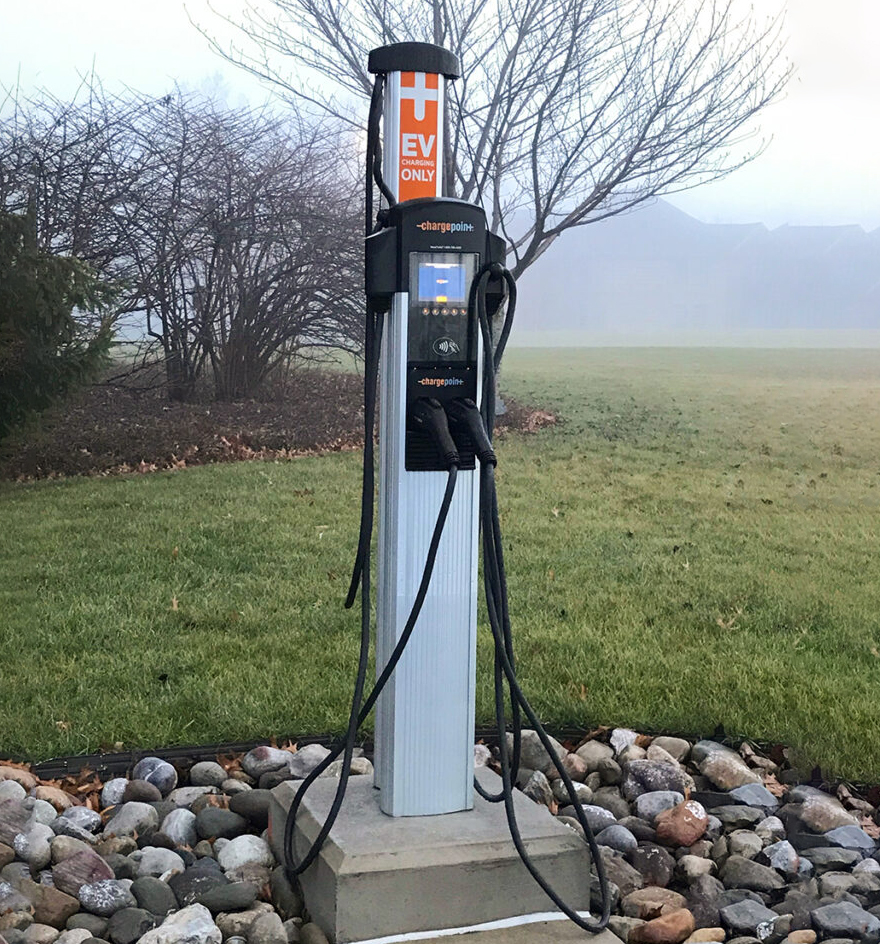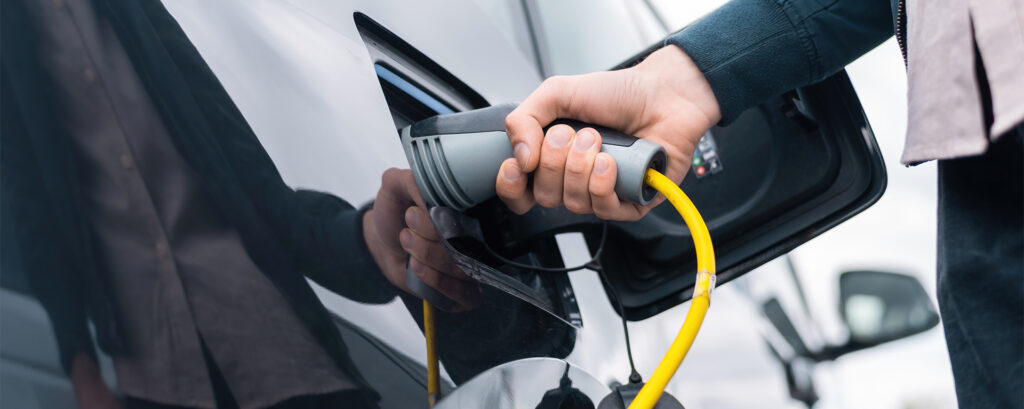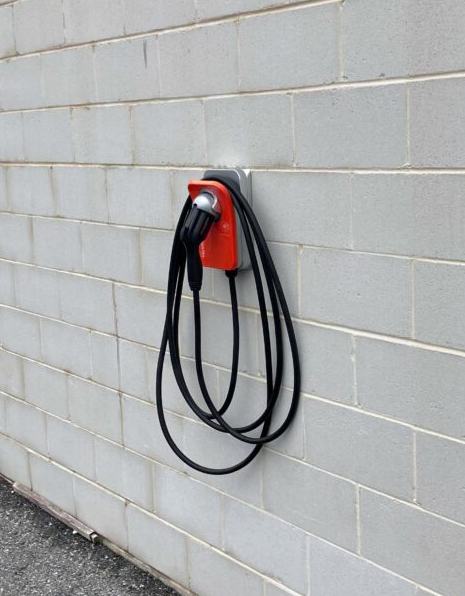G.R. Sponaugle designs and installs Electric Vehicle (EV) charging stations for many clients. This includes industrial parks, government buildings, educational and healthcare facilities, corporate office buildings, as well as other public sites.
Penn State University, PennDOT, Pennsylvania Housing Finance Agency, and WellSpan Health all have EV charging stations professionally installed by G.R. Sponaugle.
G.R. Sponaugle’s electricians have experience and knowledge to ensure your EV chargers are installed correctly and meet all local code requirements.
G.R. Sponaugle’s professional team will evaluate your site, as well as the electrical infrastructure, compliance, and safety issues.

Charging Levels
The process of electrification is evolving, and calculating what your specific needs are can seem complicated, even overwhelming. G.R Sponaugle’s professional electricians can help.
There are 3 charging levels for EVs. The higher the level, the faster and more powerful the charging power becomes. Knowing the property’s electrical capacity is the key to EV infrastructure planning.

Level 1 (Residential)
This level is for residential use, operating with basic electricity, plugging in a standard, three-prong household plug. Typical charging time is 10-40 hours, with a range per hour of 2-5 miles.
Level 2 (Residential, Light Commercial, Commercial, Public)
This level charges up to 10x faster, the charging time being 2-10 hours, with a range per hour of 10-30 miles. Requires a dedicated 240-volt circuit. Level 2 are the most popular chargers being used in applications from residential to commercial and public space.
Residential/Light Commercial – Relatively simple installation but still needs to be installed by a licensed electrician on a dedicated circuit. It may require an upgrade to the electrical service. This level offers basic access control, which is not typically needed in private residences; however, it may be required in light commercial.
Commercial/Public – These require a more complex installation, such as trenching, new electrical service, cellular connectivity, etc. This level offers an access control mechanism.
Level 3 (Commercial, Public)
This level, also called DC Fast Charge, offers the fastest type of charging available and uses direct current (DC), unlike the other levels, which use alternating current (AC). Many small businesses do not have the high-voltage supply required for this level, as it requires electrical service to be rated up to 480 VAC, 3-phase with a 100 Amp breaker. Some local/state ordinances require different types of disconnects. Charging time is 10-45 minutes, with a range per hour of 100-200 miles.
Used by private charging networks and pricing varies from network-to-network. Some bill the customer by how long the vehicle is connected to the charger, others bill by how much energy was dispensed. EV drivers can manage their charge through a smartphone app or an online portal.
Benefits of Commercial EV Charging

